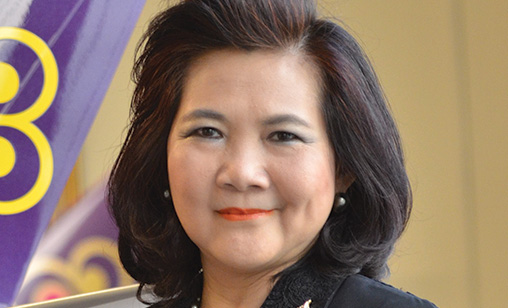News Backgrounder
Errant subsidiaries brought into THAI fold
May 1st 2017
Thai Airways International (THAI), which reported a meagre profit of $440,000 in 2016, is to run THAI, Thai Smile and Nok Air with a joint management and a single board of directors. Read More »
Under the joint framework, THAI would be the major international operator carrier; THAI Smile the domestic and Indo-China network carrier and Nok Air the budget domestic partner.
 |
THAI’s executive vice-president for corporate strategy and sustainable development, Flt. Lt. Montree Jumrieng, said co-operation between the carriers would include routes, marketing campaigns, ground services, allocation of parking bays and aircraft maintenance services.
“In the future, the three airlines will form an aviation network,” said Flt. Lt. Montree, who added the carriers would feed transit traffic onto each other’s airlines.
At THAI’s annual general meeting last month, directors told shareholders the airline is implementing the second phase of its transformation plan, “Strength Building”, which began in 2016.
To date, “Strength Building” has improved its revenue management systems, facilitated the introduction of its new business class product, launched Bangkok-Tehran and Phuket-Frankfurt, resumed Bangkok-Moscow and increased frequencies to some of its European destinations.
THAI has taken delivery of two A350-900XWB aircraft that primarily operate on intercontinental routes and will decommission two B777-200s in December. In 2016, the available seat kilometres of THAI and its subsidiaries increased by 1.9% and revenue passenger kilometres rose by 2.5%. Average load factor was 73.4% compared with 72.9% a year earlier. Passengers carried rose to 22.3 million, a 4.8% improvement.
While the 2016 profit was a marginal number, it was a significant turnaround from a year earlier when the airline group reported a $38 million loss. The transformation plan appears to be taking hold. Shareholders were told total expenses decreased by 7.1% and fuel costs declined by 28.3%, to $521.5 million.
Non-fuel operating costs did rise by 3.9%, mostly due to increases in maintenance and overhaul expenses. THAI reduced its debt level by 7.4%, to $7.3 billion, for the reported period.
THAI acting president, Usanee Sangsingkeo, said the State Enterprises Policy Commission has expressed satisfaction with the company’s reform plan. The firm’s expenses had declined in line with its target for the first two months of this year, she said, but it had not met its target for revenue growth.
Usanee said THAI’s improved seat and ticketing booking systems had increased revenue by $29 million over the first two months of this year. “THAI needs to quickly draw up a plan to increase revenue to present at the next committee meeting,” she said.
At Nok Air, shareholders have agreed to the issue of 625 million ordinary shares that will raise 1.5 billion baht (US$43.5 million) for the loss-making LCC. THAI, with a 39% holding in the carrier, will contribute 600 million baht to the share issue. Nok has employed consultants to write a rehabilitation plan for the carrier after it reported several consecutive quarters of losses. For the full 2016 year, the LCC lost $95.7 million.
Last month, Thai AirAsia became the second Thai airline to receive its Air Operator’s Certificate (OAC) recertification, a requirement of the International Civil Aviation Organisation (ICAO) after it red flagged Thailand in 2015 for its poor safety oversight. All Thai carriers must be recertified to meet ICAO compliant standards. The nation’s flag carrier, Thai Airways International, was the first Thai airline to be recertified. |